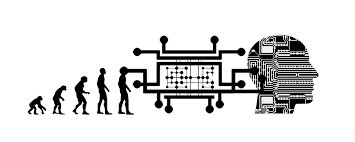Aggregated News

The New York Times recently reported that financier and recently-arrested sex trafficker Jeffrey Epstein apparently believes in a philosophical strain called transhumanism, “the science of improving the human population through technologies like genetic engineering and artificial intelligence.” This is unrelated to medical innovation and technology that help people with disabilities function better. Transhumanism intends to use sophisticated technology to engineer and upgrade the human population’s intellect and physiology to superhuman levels.
The question is: who would supervise and participate in this improvement of the population? Some of transhumanism’s most vocal adherents are making it clear it’s a limited few. In doing so, they’re pushing the philosophy closer and closer to the effects of eugenics.
Eugenics is the science of improving the human species by selectively mating people with specific, ‘desirable’ hereditary traits to breed out disease, disabilities, and other ‘undesirable’ human traits. It was super popular with the Nazis. While even transhumanism does not explicitly encourage breeding for the superiority of one specific group, the methods endorsed by some prominent transhumanists aim for the same end.
Take, for example...



